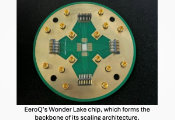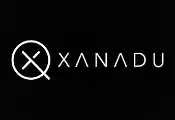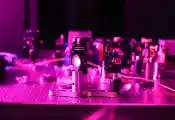D-Wave Introduces New Fast Anneal Feature, Extending Quantum Computing Performance Gains
PALO ALTO, Calif – April 18, 2024 -- D-Wave Quantum Inc. (NYSE: QBTS) (“D-Wave” or the “Company”), a leader in quantum computing systems, software, and services and the world’s first commercial supplier of quantum computers, today launched the fast-anneal feature, available on all of D-Wave’s quantum processing units (QPUs) in the Leap™ real-time quantum cloud service.
The fast-anneal feature has been a key part of D-Wave’s research milestones, including work published in Nature Physics (2022) and Nature (2023), demonstrating the advantages of annealing quantum computing over classical algorithms for solving complex optimization problems. With this feature now widely accessible, users can perform quantum computations at unprecedented speeds, greatly reducing the impact of external disturbances such as thermal fluctuations and noise that often hinder quantum calculations. By offering extended control for notably faster annealing times than previously available, the feature paves the way for customers to reproduce and build on D-Wave’s landmark optimization results using full-scale coherent annealing quantum computing available through D-Wave's Advantage™ systems and the Advantage2™ prototype, the company’s most performant system to date.
“Providing direct access to Fast Anneal, which has been at the heart of D-Wave’s recent advancements, represents a significant step forward in our mission to provide customers with the resources they need to drive innovation and achieve extraordinary results,” said Dr. Alan Baratz, CEO of D-Wave. “We believe it will further empower them to build industry-shaping applications with the most powerful quantum computing environment available today.”
Growing customer demand for D-Wave’s latest annealing quantum computing technology is clear from the usage of the two next-generation Advantage2 experimental prototypes, which together have solved nearly eight million customer problems since they were made available in 2022 and 2024.
The fast-anneal feature is anticipated to draw attention from commercial and academic researchers eager to build world-class applications, expand benchmarking studies, and connect increased coherence to better performance.
“The ability to use the fast-anneal feature to directly interact with D-Wave’s Advantage2 prototype is particularly exciting for our work building quantum-enhanced generative AI models trained on molecular data to accelerate drug discovery and design new materials,” said Christopher Savoie, co-founder and CEO of Zapata AI. “The fast-anneal feature can produce coherent distributions that have the potential to allow more efficient encoding of complex data patterns in a way that is classically impractical. In addition to molecular discovery applications, this feature could also be valuable in other industrial applications involving complex data patterns, particularly in combinatorial optimization problems found across industries.”
“By providing direct access to quantum computing’s central nervous system, D-Wave is single-handedly opening new horizons for our research on quantum computing and AI,” said Ed Heinbockel, president and CEO of SavantX. “We believe the new capability will help us realize significant benefits of coherence on application development that we’d otherwise be unable to achieve.”
“Fast Anneal will assist researchers in observing the distinctive physical processes inherent in the quantum world. Heightened coherence and reduced environmental interference, will open avenues in quantum sciences,” said Alejandro Lopez-Bezanilla with Los Alamos National Laboratory. “By equipping scientists with technology capable of exploring the interactions of quantum objects with control and minimal disturbances, we anticipate a new era of experimentation free from the limitations that have hindered traditional experimental approaches. With increased quantum coherence, we can finally achieve precise observations of quantum phenomena, previously only accessible in theory but now within reach of experimental validation.”




































